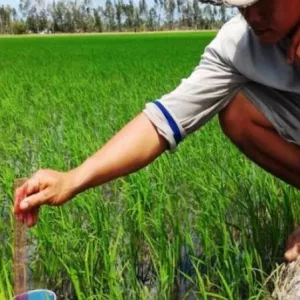Alternate Wetting and Drying can help revolutionize global rice farming
This water-conserving, emission-reducing, and cost-saving practice can help farmers, but challenges still remain for widespread adoption. A new paper published in Nature Food by an international team of scientists proposes that an innovative rice irrigation methodology, known as Alternate Wetting and Drying (AWD), has significant potential to transform rice farming globally, contributing to enhanced water productivity while maintaining high yields.

Alternate Wetting and Drying can help revolutionize global rice farming
This water-conserving, emission-reducing, and cost-saving practice can help farmers, but challenges still remain for widespread adoption.
A new paper published in Nature Food by an international team of scientists proposes that an innovative rice irrigation methodology, known as Alternate Wetting and Drying (AWD), has significant potential to transform rice farming globally, contributing to enhanced water productivity while maintaining high yields.
The paper, ‘Improved alternate wetting and drying irrigation increases global water productivity’, was conducted by a team of researchers from Peking University, University of Exeter, University of California Davis, Potsdam Institute for Climate Impact Research, Yangzhou University, Columbia University, and the International Rice Research Institute. Analyzing data from over 1,100 field observations, the study found that strategic drying periods between irrigation cycles could save significant amounts of irrigation water without compromising rice production.

